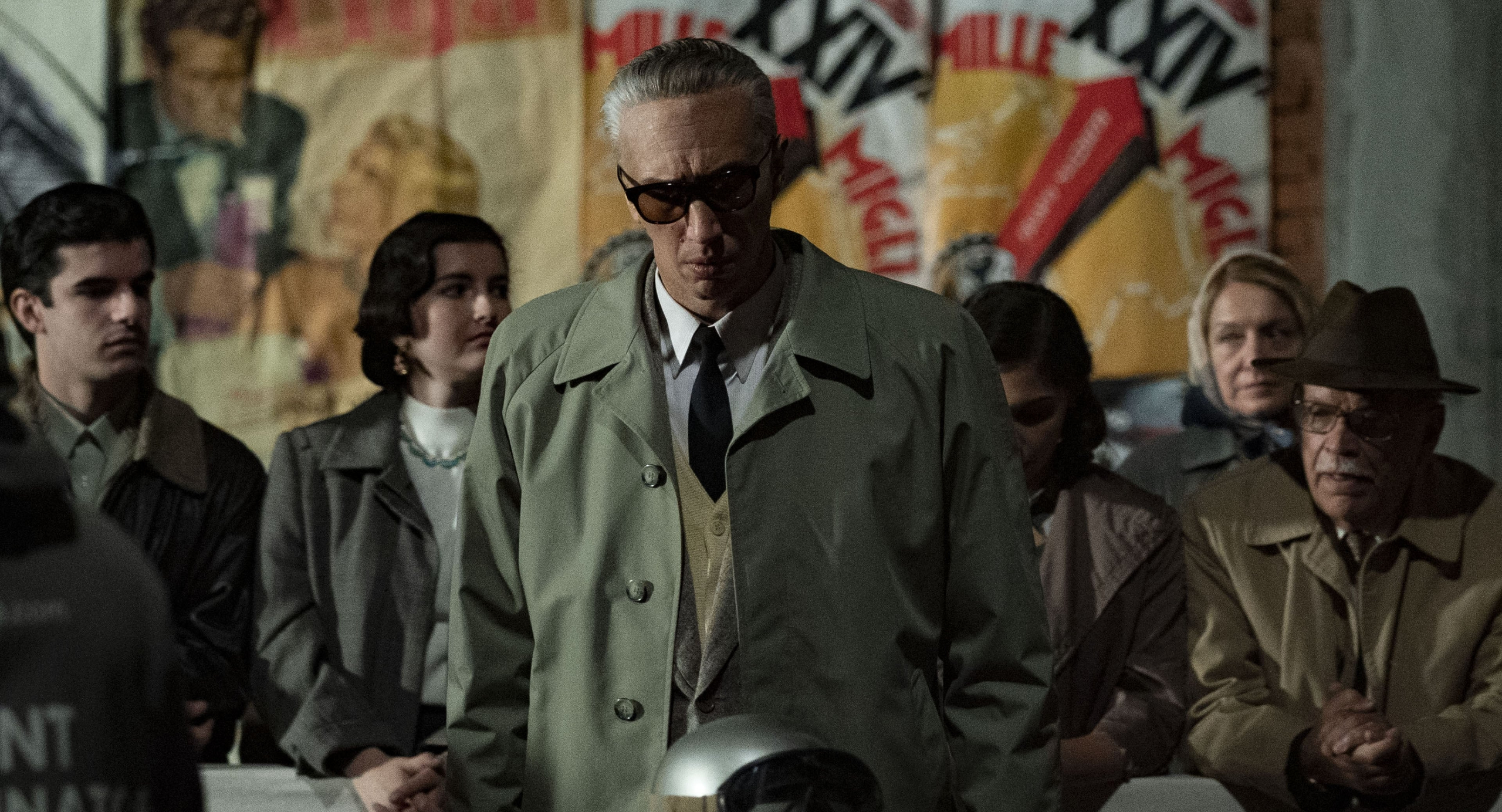Ferrari – Film Review
Published December 4, 2023

Ferrari, the latest cinematic endeavour from esteemed director Michael Mann, speeds ahead with undeniable fervour. Just as a racing car needs to balance speed and control, Mann deftly handles the volatile amalgam of Enzo Ferrari’s personal woes and professional hurdles. Garnering a four out of five-star rating, Ferrari might be short of perfection, but its merit lies in its spectacular storytelling and outstanding performances.
Adapted from Brock Yates‘ 1991 biography, the film spotlights Ferrari’s heartrending summer of 1957, interweaving a network of high-stakes challenges: the haunting death of his son Dino, a crumbling marriage, and a sinking business empire on the brink of bankruptcy. Yet Ferrari, bound by his unyielding spirit and boundless passion for racing, plunges into the daunting arena of the 1957 Mille Miglia. As this narrative plays out, one thing is for sure: this is not just a film about fast cars, but a homage to tenacity, determination and survival in the face of immense adversity.
In the role of Enzo Ferrari, Adam Driver delivers an inspired performance. His embodiment of Ferrari’s iron-willed persona, simmering vulnerabilities, and striking complexity brings a magnetic depth to the screen. Paired with Penélope Cruz‘s arresting portrayal of Ferrari’s long-suffering wife, Laura, their relationship dynamics amplify the personal strain embedded in Ferrari’s public success.
Cruz offers a refined balance of grace, pain and stoic resilience in Laura’s character that echoes compellingly alongside Ferrari’s tumult. Shailene Woodley as Lina Lardi, Gabriel Leone as Alfonso de Portago, and Sarah Gadon as Linda Christian all excel in their roles, effectively complimenting the multi-faceted layers of Ferrari’s life story. The all-star cast delivers a roundly convincing performance, transforming the script into a multi-dimensional slice of real life.
With Troy Kennedy Martin’s engaging script in hand, Michael Mann executes a seamless interplay of emotional drama and intense sports-action. Notoriously particular about authenticity, Mann ensures that every aspect of the era, from the revving car engines to the intricacies of Italian culture, is captured meticulously. High-speed races and fraught boardroom conversations carry equal weight in his visual narrative, skilfully mirroring the man and machine dialectic that personified Ferrari’s life.
Cinematography and set design need a special mention, as Erik Messerschmidt manages to transport the audience to Italy of the 1950s. A vibrant color palette steeped in sepia tones lends an aesthetic richness, infusing an authentic vintage charm.
Although Mann and team effectively manage the multi-faceted narrative, some elements seem overlooked. For instance, more depth in character development would have enhanced the overall cinematic experience, particularly for secondary characters who appear relatively flat against the radiant leading roles. Similarly, while the races themselves are captured impressively, the mechanical insights and insider’s perspective of the race-cars are scant, a misstep in a film catering to an audience presumably interested in automobiles.
The score by Daniel Pemberton significantly amplifies the dramatic highs and melancholic lows, beautifully integrating with the tonal shifts of the narrative.
Ferrari excels in recreating a critical juncture in Enzo Ferrari’s life, capturing both his towering strength and personal tribulations with grace. While the film’s pace may not keep the adrenaline junkies on the edge of their seat throughout, it shines in its thoughtfully composed vignettes and human drama. Ultimately, Ferrari races across the finish line, not just as a compelling sports biopic, but as a tribute to an unflinching spirit and an exploration of the man behind an iconic brand. An invigorating cinematic ride indeed!
